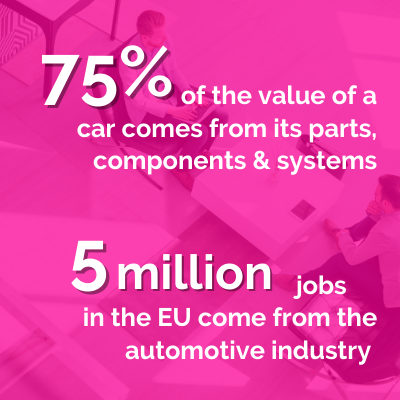Automotive suppliers, in their more than 100-year history, have been champions in adapting to new product- and marketing opportunities. And they are, once again, doing so today. European suppliers see a broader role for themselves as the mobility industry evolves.
They adapt to new product and market opportunities, lead the way for innovation, and create employment. In order to continue leading the technology-driven transformation of mobility, automotive suppliers need a business-friendly and competitive regulatory environment.
As global competition intensifies, the European supplier industry is investing more in R&D. Every year automotive suppliers invest over €30 billion in R&D and file over 9,000 patents, offering a wide range of new products and solutions to the market.
A functioning, reliable and innovation-friendly legal framework across European borders will be a prerequisite for continued success in a world increasingly characterised by global competition. European supplier companies can only be leaders in their field when their home market operates with as few internal barriers as possible.
See our page on CO2 standards for heavy-duty vehicles, which focuses on tech diversty for trucks and the road towards climate-neutral mobility.





